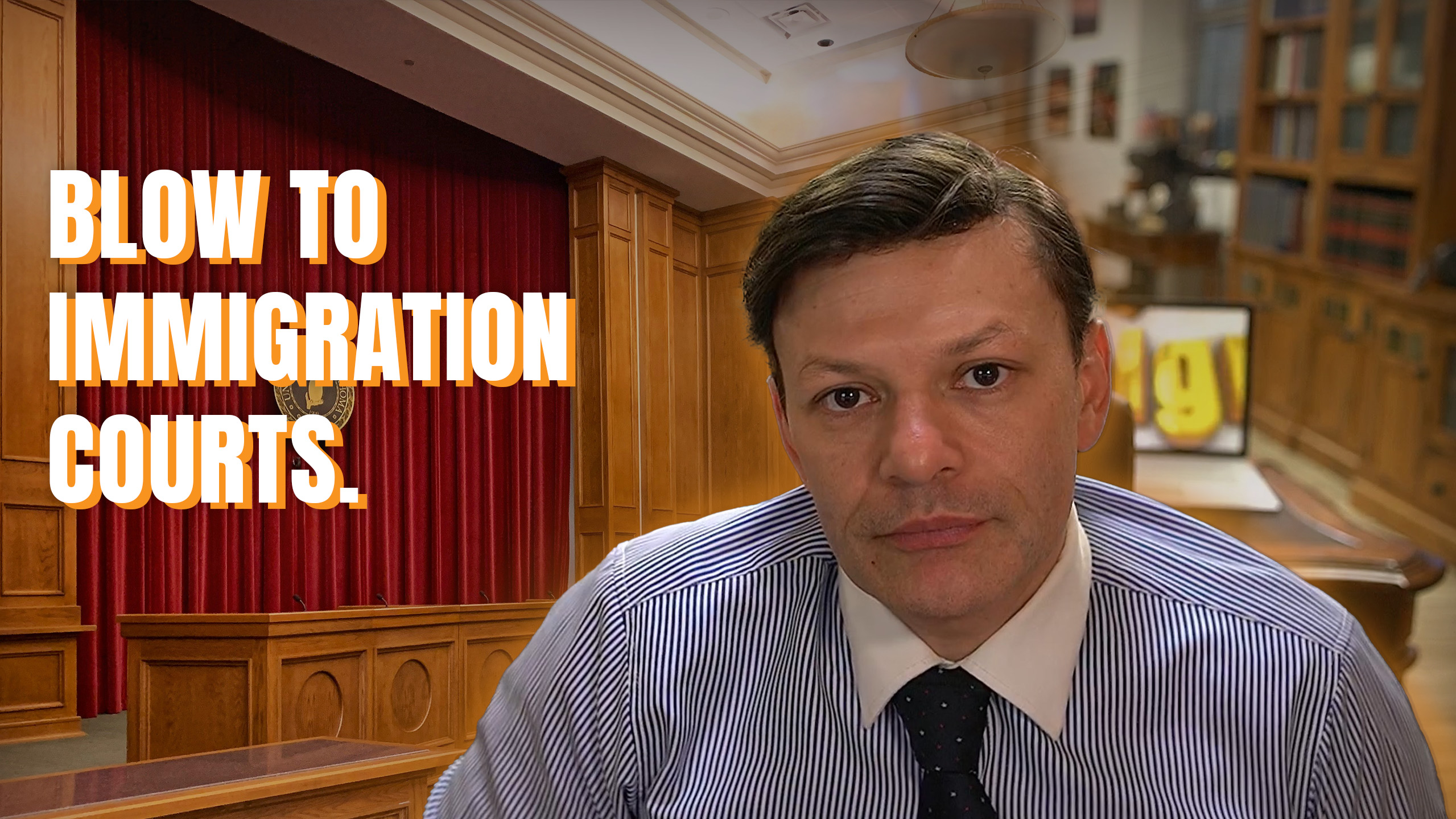Immigrating Through Family Members
Immigrant Visas
Most immigration happens through family members who are either citizens or lawful permanent residents of the United States. To determine if there are any options available for an undocumented immigrant to obtain legal status, family is the first place to look. We want to see, first of all, if they are the immediate relatives of US citizens. Immediate relatives of US citizens include their spouses, minor children and their parents, but only when the US citizen is over the age of twenty-one.
If, for example, an undocumented immigrant is married to a United States citizen, his spouse can file an immigrant visa petition on his behalf, and once that is approved, he can file an immigrant visa application. The undocumented immigrant will need to leave the country for a period of time to attend an interview in his country of origin, and she will probably need to file a waiver to overcome any bars of inadmissibility, the most common of which is unlawful presence. His time out of country will vary from a week or two to about six months, depending on the type of waiver needed.
This is true for minor children who have parents who are United States citizens, too. If the minor child is under eighteen, there is no waiver necessary for unlawful presence, but there could be other issues. It is best to consult with an immigration attorney.
For the undocumented parents of United States citizens, this, unfortunately, is not an option. While a citizen can file an immigrant visa petition for her parents when she turns twenty-one, and her parent can file an immigrant visa application, they run into a problem when it comes to attending the visa interview in the country of origin, because there is no waiver of unlawful presence for parents of United States citizens.
Adjustment of Status under INA 245(a) and (c)
An individual who entered the United States lawfully as a non-immigrant can obtain lawful immigrant status through a process called adjustment of status. It is likely that such an individual will not need to leave the country to attend an interview, nor will he necessarily need to file a waiver. It is further possible to file the immigrant visa petition and the residency application at the same time.
Adjustment of Status under INA 245(i)
Though instances are rarer and rarer, there are some undocumented individuals for whom petitions have been filed that, though they entered the US without authorization, can still adjust status. It is, therefore, important to see if any earlier petitions have been filed on behalf of the individual, or if any have been filed on behalf of the individual’s family members. An immigrant visa petition with a priority date of April 30, 2001 or earlier can permit an undocumented immigrant to adjust status even if he didn’t enter the country with authorization; furthermore, if a family member of an undocumented immigrant had an immigrant visa petition filed on his behalf by a third person, and the relationship between the undocumented immigrant and the family member existed at the time the petition was filed, the undocumented immigrant may be able to adjust status, too. For example, if an undocumented immigrant is married to a USC, and an I-130 was filed for the undocumented immigrant before April 30, 2001, by, say, a parent or a sibling, the undocumented immigrant may be able to adjust status. Alternatively, if the uncle of the same undocumented immigrant filed a visa petition for the undocumented immigrant’s mother, as long as the undocumented immigrant was alive at the time of the petition filing, he may be eligible to apply to adjust status.
Victims of Crime and Domestic Violence
There are three immigration benefits for victims of crime and domestic violence. The first is part of the Violence Against Women Act, which has an immigration component allowing abused spouses and minor children of citizens and permanent residents to effectively remove the abusive spouse or parent from the equation and “self-petition”. For this, the undocumented immigrant needs to show the relationship between the abuser and herself as well as proof that she was abused. She also has to show that she is a person of good character.
If an individual is not eligible for VAWA, she could be eligible for a U Visa, which is for victims of crime. For U visas, the undocumented immigrant needs to show that she was a victim of crime and that she was reasonably cooperative in the investigation or prosecution of the crime of which she was a victim.
T Visas are like U Visas, but they are specifically for victims of human trafficking.
VAWA, U visas, and T visas can all lead to permanent residency.
Deferred Action
Deferred Action for Childhood Arrivals (DACA)
This is available to individuals who entered the United States as minor children (under 16) before June 15, 2007 and graduated from high school in the US or obtained their GED here. It is also available to those who are currently enrolled in school or a GED program.
An announcement by President Obama on November 20th, 2014, is intended to extend DACA to those who entered before January 1, 2010.
Deferred Action for Parental Accountability (DAPA)
This is for undocumented immigrants who are parents of United States citizen or lawful permanent resident children. These children had to be born or had to have received their lawful permanent residency before November 20, 2014. Applicants also need to show entrance into the United States before January 1, 2010.
As of this writing, a federal judge in Texas has issued an injunction which blocks the implementation of DACA extension and DAPA. The Obama Administration is appealing the decision.
Asylum
In rare cases, an individual may be eligible for asylum. Asylum requires that an applicant show that she will suffer persecution if she returns to her home country because of political opinion, religion, race, nationality, or because she is a member of a particular social group.
Recently federal courts have determined that victims of domestic violence qualify as being members of a particular social group; therefore a victim of domestic violence in her country of origin could claim asylum in the United States if she could show that her country of origin is unwilling or unable to help her. This is probably the most common way in which asylum could be used to assist an undocumented individual; however, if the individual falls into any of the other four categories, a case for asylum can be made as well.
Special Immigrant Juveniles
This is a benefit for unaccompanied minors who are wards of state courts. Even if the minor entered the US without authorization, if he is under the court’s supervision, then a special immigrant juvenile petition could be a possibility.
There are a variety of different pathways to legal status for undocumented immigrants. In order to be able to determine what is possible requires information on a variety of subjects. While it is true that not everyone can be helped, knowing an individual’s background can help determine what, if anything, can be done.


